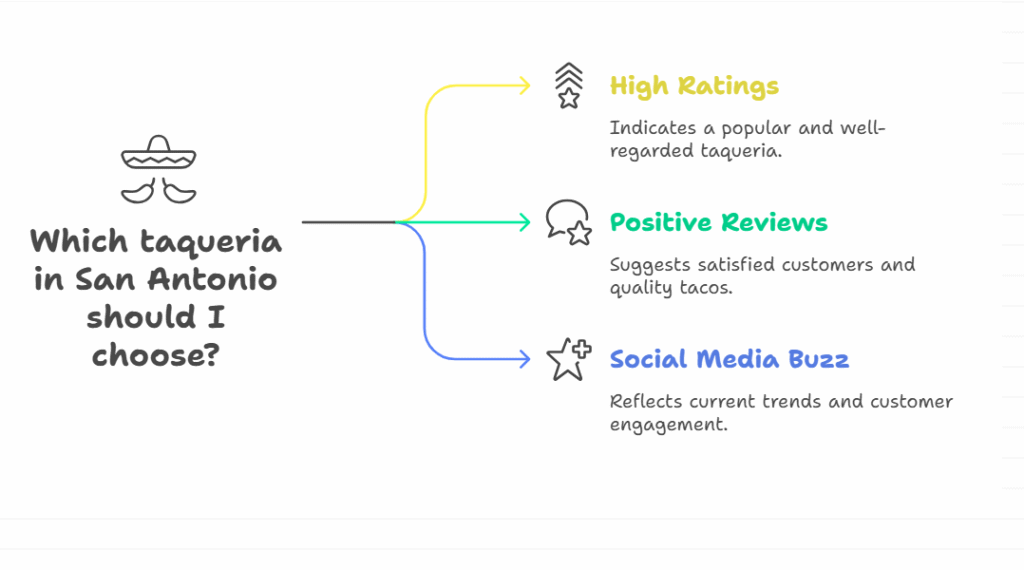Data Point is a single piece of information collected during research, analysis, or observation. Think of it as a single dot on a graph, a single answer in a survey, or a single review for a taqueria in San Antonio. Alone, a data point might not tell you much. But when you gather a collection of related data points, you start to see patterns, trends, and stories emerge.
Why does this matter? Because in 2025, every decision—big or small—relies on data. From choosing the right marketing strategy to finding the best tacos in San Antonio, data points are the foundation of insight.
The Power of a Collection of Related Data Points
A single data point is just the beginning. The real magic happens when you collect and analyze a collection of related data points. This is how businesses spot trends, scientists make discoveries, and foodies find the best eats in town.
For example, imagine you’re tracking customer reviews for “taqueria datapoint San Antonio.” One review (a single data point) might say the tacos are amazing. But when you gather hundreds of reviews (a collection of related data points), you can see which menu items are most popular, what times are busiest, and how the service stacks up against other tacos San Antonio has to offer.
Real-World Example: Data Points in Action
A local business owner recently shared,
“We started tracking every customer’s feedback as a data point. After a month, we realized our lunchtime tacos were getting rave reviews, but dinner service needed work. That single insight helped us boost our evening sales by 30%.”
This is the power of data points: one by one, they add up to actionable insights.
Data Points in Everyday Life: From Watches to Tacos
Oris Big Crown Pointer Date: Data Points in Luxury
You might not expect a luxury watch like the Oris Big Crown Pointer Date to have anything to do with data points. But every feature—case size, movement accuracy, water resistance—is a data point that collectors and enthusiasts use to compare models and make buying decisions. When you read a review or watch a YouTube unboxing, you’re absorbing a collection of related data points that shape your opinion.
Taqueria Datapoint San Antonio: Data Points for Foodies
If you’re searching for the best “taqueria datapoint San Antonio,” you’re probably looking at ratings, reviews, and maybe even social media posts. Each one is a data point. When you see that a spot has 4.8 stars and hundreds of happy customers, you know you’re in for some of the best tacos San Antonio can offer.

How Data Points Drive Decision-Making in 2025
In the age of AI and big data, data points are more important than ever. Here’s how they shape our world:
- Business: Companies use data points to track sales, customer satisfaction, and market trends.
- Science: Researchers collect data points to test hypotheses and validate results.
- Personal Life: From fitness trackers to restaurant reviews, we use data points to make everyday choices.
The more data points you have, the clearer your picture becomes.
The Anatomy of a Data Point
A data point usually includes:
- Value: The actual measurement or observation (e.g., 5 stars, 72 bpm, $19.99).
- Context: What the value refers to (e.g., taco rating, heart rate, product price).
- Time/Location: When and where the data was collected (e.g., lunch hour, San Antonio, July 2025).
When you combine these elements, you get a data point that’s meaningful and actionable.
Data Points in Technology: From Wearables to Web Analytics
Wearables: Every Step Counts
Your smartwatch or fitness tracker is a data point machine. Every step, heartbeat, and calorie burned is logged as a data point. Over time, a collection of related data points helps you see trends in your health and fitness.
Web Analytics: Tracking Every Click
If you run a website, every visitor, click, and purchase is a data point. Tools like Google Analytics collect millions of data points to help you understand your audience and optimize your site.
Risks and Challenges: When Data Points Go Wrong
Not all data points are created equal. Here are some risks to watch out for:
- Bad Data: Inaccurate or incomplete data points can lead to bad decisions.
- Bias: If your collection of related data points isn’t representative, your insights will be skewed.
- Overload: Too many data points without context can be overwhelming.
The key is to collect high-quality data points and analyze them thoughtfully.
Data Points and Privacy in 2025
With so much data being collected, privacy is a top concern. Always make sure your data points are collected ethically and stored securely. In 2025, new regulations require businesses to be transparent about how they use and protect customer data points.
Data Points in Marketing: Turning Numbers into Action
Marketers live and breathe data points. Every click, like, and share is tracked and analyzed. By studying a collection of related data points, marketers can:
- Identify which ads are working
- Understand customer preferences
- Optimize campaigns for better results
A single data point might show that one person clicked an ad. But a collection of related data points reveals which ads are driving real sales.
Data Points in Food: The Tacos San Antonio Example
Let’s say you’re on a mission to find the best tacos San Antonio has to offer. You check out reviews, social media posts, and maybe even ask friends for recommendations. Each response is a data point. When you see that “taqueria datapoint San Antonio” keeps popping up with rave reviews, you know you’ve found a winner.
How to Collect and Analyze Data Points
- Define Your Goal: What question are you trying to answer?
- Gather Data Points: Use surveys, sensors, reviews, or analytics tools.
- Organize Your Data: Group data points by category, time, or location.
- Analyze for Patterns: Look for trends, outliers, and correlations.
- Act on Insights: Use your findings to make better decisions.
Data Points in Science: From Hypothesis to Discovery
In scientific research, every experiment generates data points. A single measurement might not mean much, but a collection of related data points can prove or disprove a theory. This is how breakthroughs happen—one data point at a time.
Data Points in Finance: Tracking Every Dollar
Financial analysts rely on data points to track stock prices, market trends, and investment performance. By analyzing a collection of related data points, they can spot opportunities and avoid risks.
Data Points in Social Media: The Pulse of Public Opinion
Every like, comment, and share is a data point. Social media platforms use these data points to personalize your feed, recommend content, and even predict trends.
Data Points and AI: Smarter Decisions in 2025
Artificial intelligence thrives on data points. The more data points an AI system has, the smarter it becomes. In 2025, AI is used everywhere—from recommending tacos in San Antonio to optimizing supply chains.
Pros and Cons of Relying on Data Points
Pros
- Objective: Data points provide unbiased information.
- Scalable: Easy to collect and analyze large amounts of data.
- Actionable: Help turn raw numbers into real-world decisions.
Cons
- Quality Matters: Bad data points lead to bad decisions.
- Privacy Risks: Collecting too many data points can invade privacy.
- Analysis Paralysis: Too much data can be overwhelming without the right tools.
Real-Life Example: Oris Big Crown Pointer Date and Data Points
Watch collectors use data points to compare models, track prices, and spot trends. One enthusiast said,
“I track every sale and review of the Oris Big Crown Pointer Date. Over time, I’ve built a database of data points that helps me predict which models will appreciate in value.”
This is a perfect example of how a collection of related data points can turn a hobby into a science.
FAQs
Q. What is a data point in simple terms?
A. data point is a single piece of information collected during research or analysis. It could be a number, a rating, or an observation.
A. By analyzing a collection of related data points, you can spot patterns, trends, and insights that help you make better decisions.
Q. What is “taqueria datapoint San Antonio”?
A. It’s a popular search for a taqueria (taco shop) in San Antonio, Texas. Each review or rating for this spot is a data point that helps foodies decide where to eat.
Q. How do data points relate to the Oris Big Crown Pointer Date?
A. Every feature, review, and sale price of the Oris Big Crown Pointer Date is a data point that collectors use to compare models and track value
Final Thoughts
In 2025, the world runs on data points. From luxury watches to tacos San Antonio locals rave about, every decision is shaped by a collection of related data points. The next time you check a review, track your steps, or analyze a business report, remember: every data point is a building block of insight.
CLICK HERE FOR MORE BLOG POSTS
John Authers is a seasoned and respected writer whose work reflects the tone, clarity, and emotional intelligence that readers value in 2025. His writing blends deep insight with a natural, human voice—making complex ideas feel relatable and engaging. Every piece he crafts feels thoughtful, original, and genuinely worth reading.

